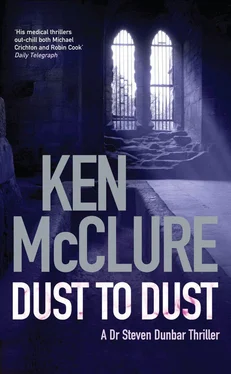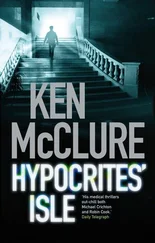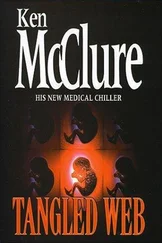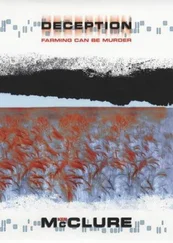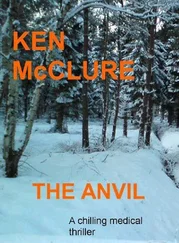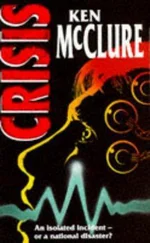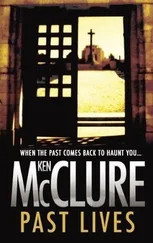Ken McClure - Dust to dust
Здесь есть возможность читать онлайн «Ken McClure - Dust to dust» весь текст электронной книги совершенно бесплатно (целиком полную версию без сокращений). В некоторых случаях можно слушать аудио, скачать через торрент в формате fb2 и присутствует краткое содержание. Жанр: Триллер, на английском языке. Описание произведения, (предисловие) а так же отзывы посетителей доступны на портале библиотеки ЛибКат.
- Название:Dust to dust
- Автор:
- Жанр:
- Год:неизвестен
- ISBN:нет данных
- Рейтинг книги:5 / 5. Голосов: 1
-
Избранное:Добавить в избранное
- Отзывы:
-
Ваша оценка:
- 100
- 1
- 2
- 3
- 4
- 5
Dust to dust: краткое содержание, описание и аннотация
Предлагаем к чтению аннотацию, описание, краткое содержание или предисловие (зависит от того, что написал сам автор книги «Dust to dust»). Если вы не нашли необходимую информацию о книге — напишите в комментариях, мы постараемся отыскать её.
Dust to dust — читать онлайн бесплатно полную книгу (весь текст) целиком
Ниже представлен текст книги, разбитый по страницам. Система сохранения места последней прочитанной страницы, позволяет с удобством читать онлайн бесплатно книгу «Dust to dust», без необходимости каждый раз заново искать на чём Вы остановились. Поставьте закладку, и сможете в любой момент перейти на страницу, на которой закончили чтение.
Интервал:
Закладка:
It was Steven’s turn to smile at the mention of the UK’s chemical and biological defence establishment. ‘There’s a surprise,’ he murmured.
‘I think we can assume that they’ll want to examine the chamber, swab it down and take samples of the dust. They’ll probably put a mobile lab on site, like some of the others, but you have as much right as they have to be there and to ask questions. Don’t let them push you around.’
‘As if,’ said Steven. He’d come into conflict with Porton Down on a number of occasions in the past. ‘Anyone else I have to worry about?’
Macmillan adopted a pained expression. ‘There’s a degree of religious interest,’ he said. ‘There’s some sort of inter-faith discussion going on over what should happen to the inmates of the chamber and how their remains — the dust — should be disposed of, but that won’t affect you. There’s nothing anyone can do until the closure notice on the site is lifted and that won’t be until Public Health is satisfied that there isn’t a problem. I’ve informed the relevant authorities in the area that Sci-Med is taking an interest.’
‘Best get started then.’
Steven took the file back to his flat and read it through. There was very little to assimilate. John Motram was a 52-year-old lecturer at Newcastle University, and an acknowledged expert on how viruses infected people. He lived with his wife Cassandra in the village of Longthorn, a little north of Newcastle, where she was a partner in the group medical practice that served the surrounding area. He had no known history of mental illness or any other medical problems. In all respects, he seemed a perfectly normal, well-respected man who had, for no apparent reason, flipped his lid after entering a seven-hundred-year-old tomb harbouring victims of Black Death.
Steven appreciated that it was the Black Death connection that had attracted Macmillan’s attention, and reflected on the fact that the mere mention of a disease that had inspired such fear and dread down through the years, having wiped out a third of Europe’s population in the fourteenth century, was enough to precipitate a Sci-Med investigation in the twenty-first.
His first impulse was to dismiss any possible connection between Black Death and Motram’s illness, but he had to acknowledge that in doing so he was assuming the very thing that Motram was arguing against, that Black Death had been caused by bubonic plague. It was certainly true that bubonic plague could not have survived in the dust of decayed bodies for such a long time and had no history of including madness among its extensive and horrifying repertoire of symptoms, but none of that would be relevant if Black Death had been caused by something else entirely. This was not a comforting thought.
Knowing that Porton Down was involved did little to lift his spirits either, especially when he started to wonder how likely it was be that their scientists would share their findings with the wider scientific community if evidence of a previously unknown microbial agent should come to light. He concluded that it wasn’t very likely at all. It would be par for the course if they and the Ministry of Defence were to classify the whole affair under the Official Secrets Act. The sooner he got up there the better.
Steven held a particular loathing for the very notion of biological warfare. The idea of intelligent people teaming up with the microbial world — so long the sworn enemy of mankind — to design ever more dangerous bacteria and viruses seemed to embody the very essence of evil. He knew that the UK’s Porton Down facility would insist that their interest was solely concerned with defence of the realm, but that would be the claim of every military microbial research lab on earth. It made him think of the labs full of smallpox virus that had been discovered all over the old Soviet bloc after the Berlin Wall came down — at a time when the World Health Organisation had been debating whether or not to destroy what they had believed to be the last remaining lab stocks of the virus on earth to create a smallpox-free planet.
Steven turned his attention to transport. He would need a car once he was up in Scotland, so should he fly up to Edinburgh or Glasgow and hire one for the duration of his stay or should he use his own car to drive north? He decided a phone call would help him with the decision and looked through the file Jean Roberts had given him for the number of the relevant Public Health authority in the area.
He spoke to Dr Kenneth Glass, the Public Health director, who told him the good news that his people had been first on site after the incident: they had already been inside the chamber under strict bio-safety conditions and had taken a large number of samples for analysis. The fear that Porton Down and the MOD might get there first and stop anyone else collecting samples was no longer an issue. Steven decided to drive up to Scotland.
SEVENTEEN
Steven left early next morning. He was looking forward to his first long-distance try-out of the new Porsche Boxter he’d bought to replace the one destroyed during the course of his last assignment. Luckily, Sci-Med took care of insurance matters for their people and it hadn’t been necessary for him to explain the reasons behind his somersaulting from the M1 into a field and the resulting fireball.
Steven was up in Scotland by early afternoon but it wasn’t until he’d left the motorway to follow the winding border country roads that he really started to enjoy the car. The exhilaration of good acceleration and limpet-like road holding ensured that he was in a good mood when he drew into the car park at Borders General Hospital and cut the engine. Not only was Dr John Motram being held here in isolation but the man he’d injured by dropping a mechanical shovel on his leg, Tony Fielding, was a patient in the orthopaedics department.
Unlike those of inner-city hospitals, where parking was always difficult and a constant bone of contention, the car parks here were extensive. He had found a space without any difficulty, enabling him to maintain his good mood as he left the car and walked over to Reception, where he asked for Dr Toby Miles, the man the file informed him was responsible for Motram’s care.
Miles turned out to be a short, tubby man with wiry, dry-looking hair and a florid face. He was dressed in a grey pin-striped suit, a pink shirt and a purple tie which didn’t help with the complexion problem. He examined Steven’s ID at some length before returning it and asking, ‘What can I do for you, Dr Dunbar?’
‘I understand you are the psychiatrist in charge of John Motram’s case, doctor. I’d like to know your thoughts on what you think might have happened to him.’
Miles appeared thoughtful for what seemed an age, and Steven was beginning to wonder whether the man had an interest in amateur dramatics when he finally said, ‘I’m sorry, Dr Dunbar, but the truth is I simply don’t know. John Motram is out of his tree.’
‘Too technical for me, doctor,’ said Steven with a smile and the ice was broken between them.
‘I’ve never seen anything like it before,’ said Miles. ‘I was told that he’d had a mental breakdown but I’m now inclined to think that it’s not a psychiatric problem at all. It’s more like some form of delirium, and the fact that he has breathing difficulties tends to support this. I’m told that tests are also showing signs of liver damage, so the ball is moving rapidly out of my court and into the realm of the physician. I suppose it was natural to assume at the time that he’d had some sort of break-down associated with stress or disappointment, but he hasn’t. It’s really beginning to look much more like a case of poisoning or even an infection of some sort.’
Читать дальшеИнтервал:
Закладка:
Похожие книги на «Dust to dust»
Представляем Вашему вниманию похожие книги на «Dust to dust» списком для выбора. Мы отобрали схожую по названию и смыслу литературу в надежде предоставить читателям больше вариантов отыскать новые, интересные, ещё непрочитанные произведения.
Обсуждение, отзывы о книге «Dust to dust» и просто собственные мнения читателей. Оставьте ваши комментарии, напишите, что Вы думаете о произведении, его смысле или главных героях. Укажите что конкретно понравилось, а что нет, и почему Вы так считаете.
